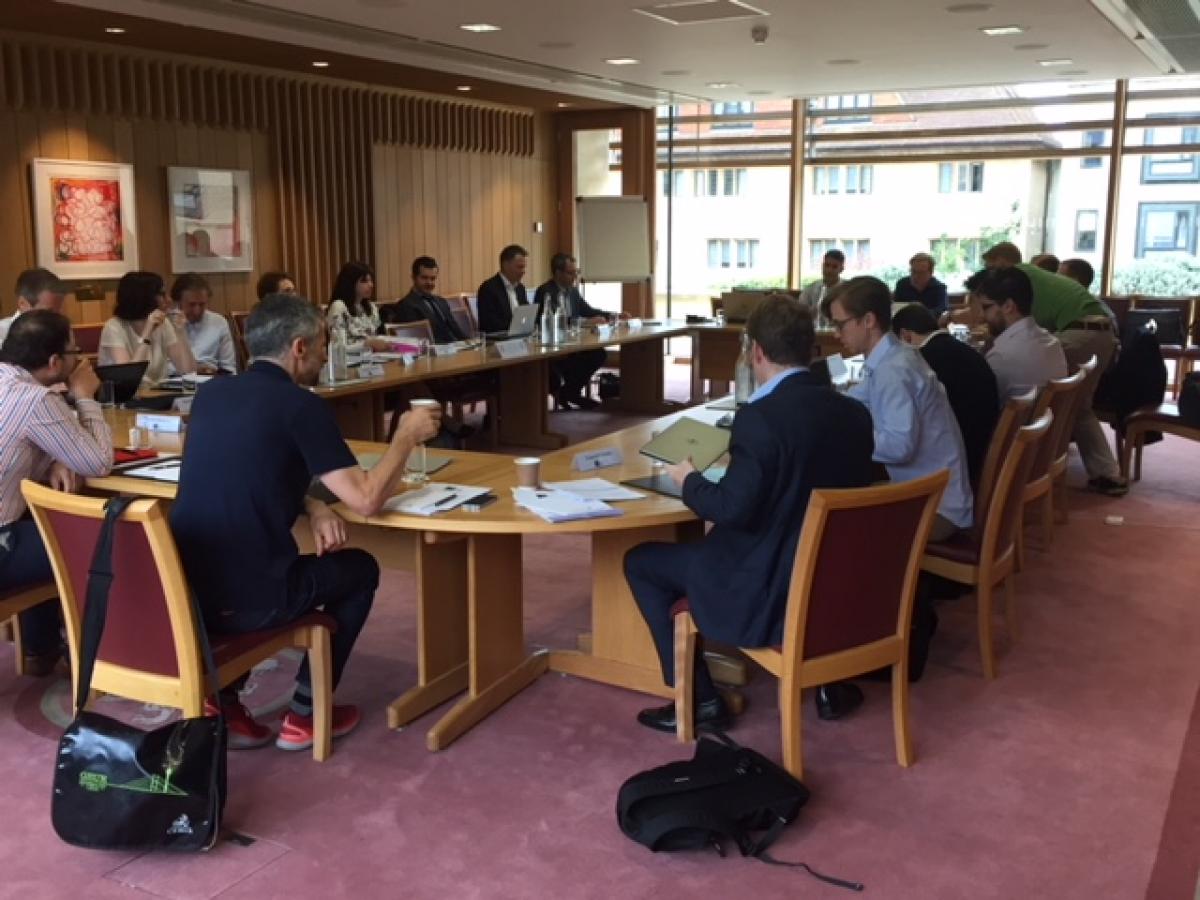OIPRC hosts ‘Workshop on Intermediary Liability for Intellectual Property Infringement’

On 27 June 2018, the Oxford Intellectual Property Research Centre (OIPRC) hosted an expert Workshop on Intermediary Liability for Intellectual Property Infringement at Pembroke College, University of Oxford.
The question of intermediary liability – to what extent should a third party be liable for someone else’s infringement? – is not new in intellectual property. Back in the 1980s, the House of Lords in CBS v Amstrad had to consider whether an electronics company should be responsible for advertising and selling a sound system which enabled individuals to make copies of copyright-protected tapes. With the advent of the internet and the development of networked technologies (in particular, on-line platforms) facilitating the dissemination of works and marketing of goods, however, intermediary liability has taken on a new significance. As the physical constraints of the past receded, large-scale infringement became all the more pervasive. While one’s capacity to copy audio-cassettes or compact discs was limited by access to those physical copies, today digital files may be easily located, copied, transmitted or otherwise shared on-line. And because recourse against those directly engaging in infringement activities has its difficulties, attention soon shifted to the role of on-line service providers. This move prompted many to revisit (or perhaps, reframe) certain questions on intermediary liability. Should we expect something more from actors such as YouTube and Facebook? What, if anything, makes them different? Is there an optimal mechanism for reconciling IP protection with other societal values like freedom of expression and access to information? Who should bear the costs of enforcement?
Some practical, doctrinal ramifications of these questions may be already effecting change in the IP landscape. Alongside an increasing expansion of the scope of the concept of communication to the public promoted by the CJEU in European copyright, recent developments in the field include the UK Supreme Court’s decision in Cartier on website blocking injunctions and the controversial European Commission’s proposal for a Directive on Copyright in the Single Digital Market currently debated at the Parliament.
Against this backdrop, the OIPRC workshop brought together 20 intellectual property scholars and practitioners from across Europe (see below for the full list of participants), who set out to discuss some of these issues. They were structured in four thematic sessions which, by way of example, included the following:
1. Bases for Liability/Accountability: On what bases should intermediaries be liable for infringement of intellectual property rights committed by others using their services? On what bases should intermediaries be required to assist intellectual property owners enforcing their rights or required to assist in preventing future infringements?
2. Sources of Law; Forms of Regulation: By reference to what norms (or sources of law) should the liability or responsibility of intermediaries be assessed? Does certainty require greater legislative delineation of rules at the EU level? Does flexibility and the need for dynamic adaptation require that much be left to the courts? Is it acceptable that mediating the rights of different stakeholders will effectively be resolved by private practices? If that is the case, is there a role for some form of public regulation?
3. Intermediary Safe Harbours; Notice and Takedown: What is/should be the role of legislative safe harbours? Are current safe harbours for intermediaries adequate to achieve their purposes? Should immunity be conditioned upon an intermediary being “neutral” or not “active”? Has the notice and takedown system worked well to regulate the online environment? What can be done to avoid the chilling effects of notice and takedown?
4. Technologically-Grounded Obligations/Principles: Article 15 of the E-Commerce Directive currently limits the ability of member states to impose obligations on intermediaries that would require them to engage in general monitoring of their users. To what extent (if any) does that principle need reformulation? To what extent does existing case law in national courts and from the CJEU interfere with or modify that principle? Does recent experience with blocking injunctions offer any lessons about how whether to revise the principle in Article 15? If instead, Article 15 simply needs re-emphasis, what is the role (if any) of filtering in the prevention of intellectual property infringement? To what extent will Article 13 of the proposed Copyright in the Digital Single Market Directive undermine the no- monitoring principle?
The discussion sessions sparked lively debate amongst participants, highlighting the relevance and complexity of the underlying subject matter. Overall, the workshop benefited greatly from in-depth contributions from expert discussants drawn from practice and academia and from common law as well as civilian jurisdictions. Each brought their own perspectives and expertise to the table. This included critical views on existing approaches by legislatures and courts to intermediary liability, amendments to the draft EU Directive, and even out-of-the-box proposals that could present a better solution for some of the most vexing issues.
Moving forward, participants were keen on continuing discussion on the topic, potentially within the scheme of the workshop. Before bringing the day to an end, OIPRC Director, Dr Dev Gangjee, invited proposals from participants for potential outputs and follow-on projects.
Participants:
- Christina Angelopoulos (Cambridge)
- Paul Davies (UCL)
- Graeme Dinwoodie (Chicago-Kent/OIPRC)
- David Erdos (Cambridge)
- Alvaro Fernandez de la Mora Hernandez (Oxford)
- Ilanah Simon-Fhima (UCL)
- Giancarlo Frosio (CEIPI)
- Dev Gangjee (Oxford)
- Jonathan Griffiths (Queen Mary)
- Henning Grosse Ruse-Khan (Cambridge)
- Martin Husovec (Tilburg)
- Annette Kur (Max Planck, Munich)
- Giuseppe Mazziotti (Trinity College, Dublin)
- Frederick Mostert (OIPRC)
- Ansgar Ohly (LMU, Munich/Oxford)
- Luis Henrique Porangaba (Oxford)
- Jaani Riordan (8 New Square)
- Martin Senftleben (Free University of Amsterdam)
- Alain Strowel (UC Louvain)
- Amedee von Moltke (Oxford)
Report by Alvaro Fernandez de la Mora Her and Luis Porangaba


